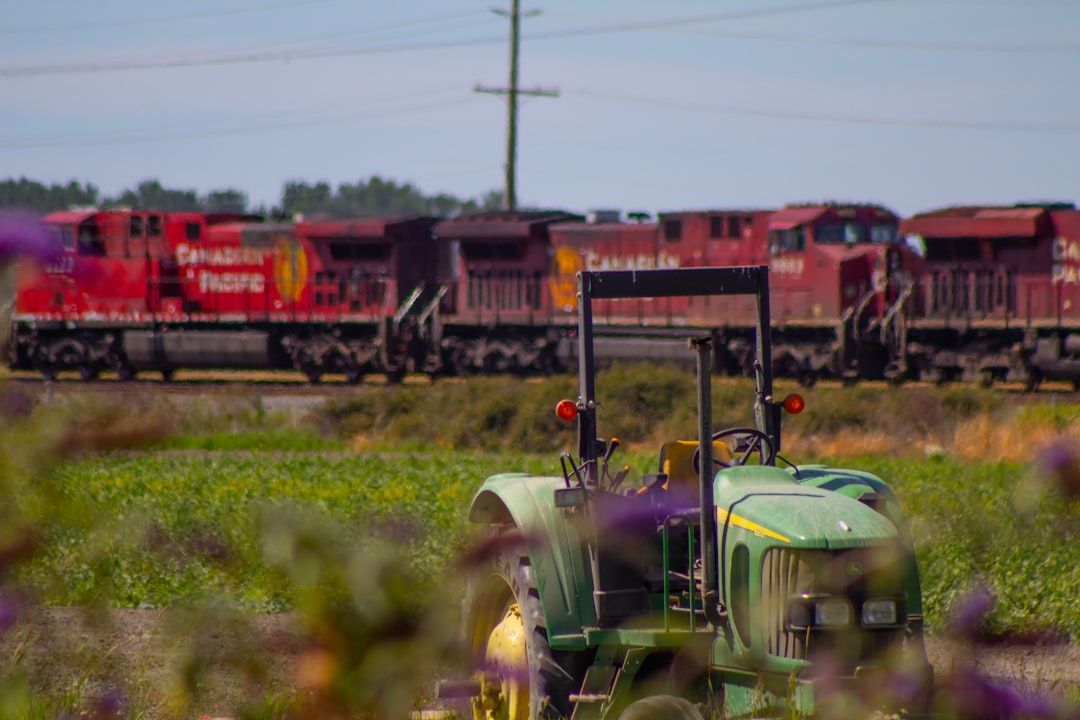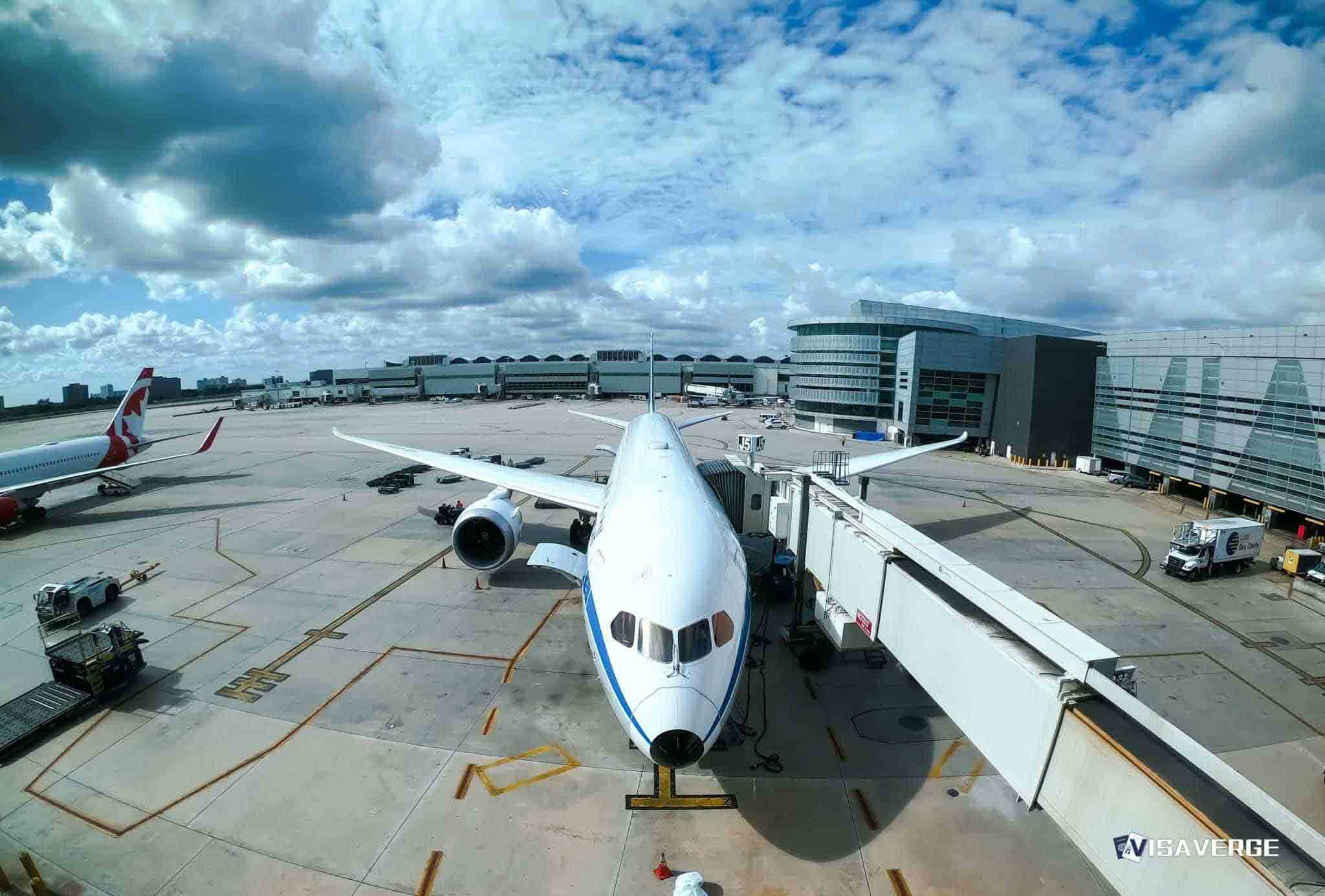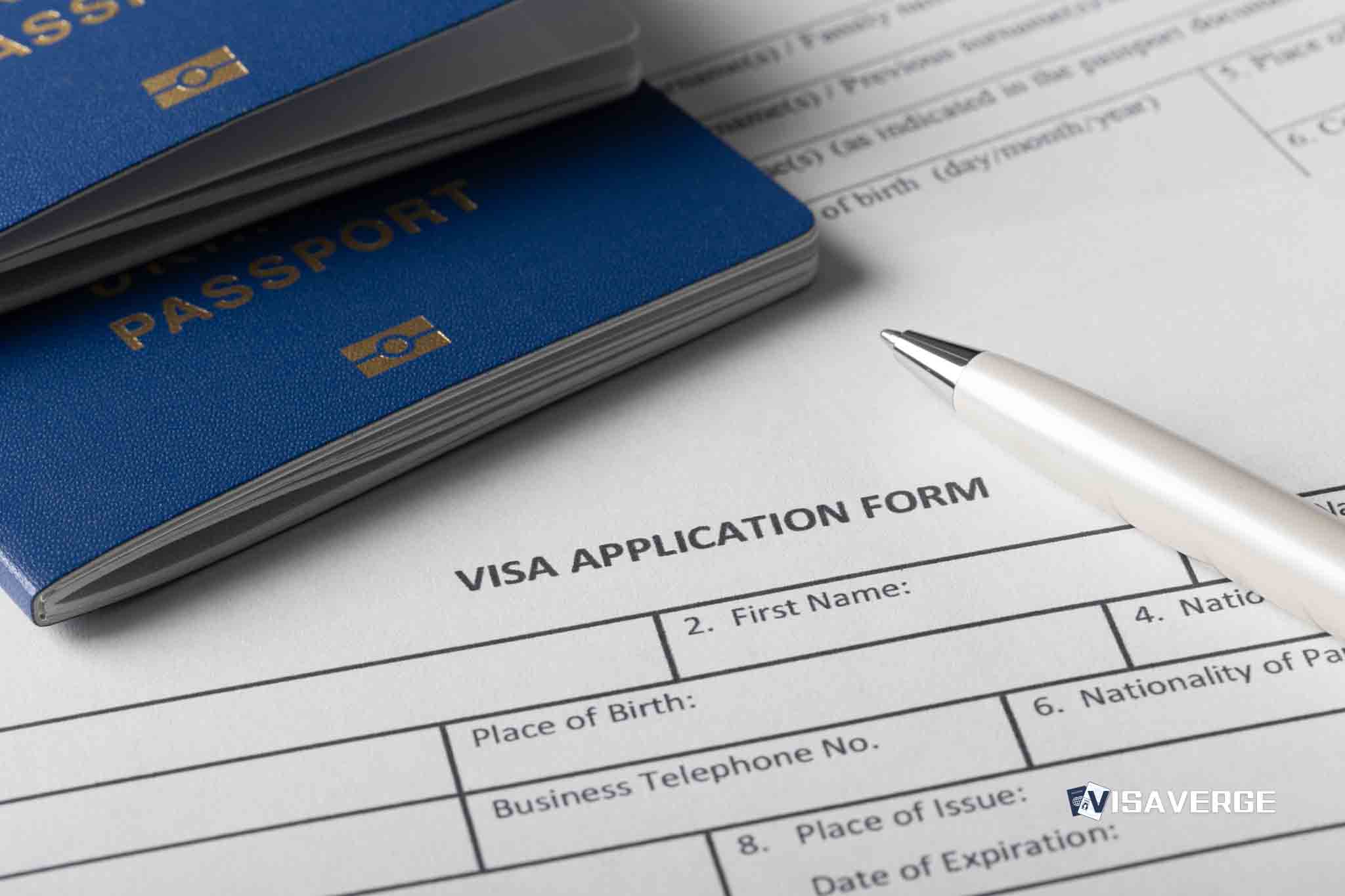Key Takeaways
• On June 20, 2025, the Trump administration suspended the 2024 Farmworker Protection Rule nationwide.
• The suspension affects union rights, wage implementation, worker termination processes, and transportation safety rules.
• Over 378,000 H-2A positions were certified in 2023, representing 20% of U.S. farm labor.
On June 20, 2025, the U.S. Department of Labor (DOL), under the Trump administration, officially suspended enforcement of the 2024 Farmworker Protection Rule. This rule, introduced during President Biden’s term, had expanded union protections and workplace rights for foreign farmworkers on H-2A visas. The sudden suspension, announced through a DOL field assistance bulletin, took effect immediately and has major implications for agricultural employers, farmworkers, and the broader U.S. farm labor market.
What Happened and Why?

The Trump administration’s decision to halt the 2024 Farmworker Protection Rule came after months of legal uncertainty. At least three federal court injunctions had blocked all or parts of the rule in 17 states, creating a confusing patchwork of requirements for employers. The DOL explained that this legal confusion, along with operational challenges for farmers who rely on H-2A workers, made it necessary to suspend the rule nationwide. As a result, the DOL will now enforce the H-2A regulations that were in place before the 2024 rule.
Who Is Affected?
- Agricultural Employers: Farmers and growers who hire foreign seasonal workers through the H-2A visa program.
- H-2A Visa Workers: Foreign nationals who come to the United States 🇺🇸 to work in agriculture for a limited time.
- Industry Associations: Groups like the American Farm Bureau Federation (AFBF) and International Fresh Produce Association (IFPA).
- Farmworker Advocates: Organizations that support the rights and welfare of farmworkers.
Immediate Impact of the Suspension
With the suspension, employers are no longer required to follow the new rules that were set out in the 2024 Farmworker Protection Rule. This means:
- Union and Worker Voice Protections: Employers do not have to provide expanded union rights or anti-retaliation policies in employer-furnished housing.
- Termination Rules: The stricter requirements for firing H-2A workers, such as progressive discipline, are no longer in effect.
- Wage Rate Changes: Employers can again use the two-week buffer before implementing new Adverse Effect Wage Rate (AEWR) updates, instead of making immediate changes.
- Transparency Requirements: There is no longer a need to disclose all recruiter agreements or productivity standards.
- Transportation Safety: The rule’s mandatory seat belt use in employer-provided vehicles is not required.
- Employer Accountability: Streamlined procedures for holding employers accountable and banning them from the program are paused.
Background: The H-2A Visa Program and the 2024 Rule
The H-2A visa program allows U.S. agricultural employers to hire foreign seasonal workers when there are not enough domestic workers available. In 2023, over 378,000 H-2A positions were certified, which is about triple the number from 2014. H-2A workers now make up about 20% of the U.S. farm labor force.
President Biden’s administration introduced the 2024 Farmworker Protection Rule to give more rights and protections to these workers. The rule aimed to:
- Expand union rights and allow workers to organize more easily
- Protect workers from retaliation, especially in employer-provided housing
- Make it harder for employers to fire workers without good reason
- Increase transparency about how workers are recruited and paid
- Improve transportation safety for workers
However, many agricultural employers and industry groups argued that these changes were too burdensome and would make it harder to run their businesses. They filed lawsuits, leading to court orders that blocked parts of the rule in several states.
Key Stakeholder Reactions
- U.S. Department of Labor: The DOL said the suspension was needed to provide clarity and stability for farmers who rely on H-2A workers.
- President Trump: The move fits with the Trump administration’s focus on rolling back regulations and tightening immigration enforcement.
- American Farm Bureau Federation (AFBF): President Zippy Duvall called the 2024 rule “burdensome” and praised the suspension, urging Congress to get rid of the rule for good.
- International Fresh Produce Association (IFPA): CEO Cathy Burns and U.S. Director of Government Relations John Hollay described the decision as a “major victory” for growers, saying it would relieve them from “exorbitant fees and restrictions.”
- Dairy Industry Analysts: While the suspension reduces paperwork, it does not solve the bigger problem of rising labor costs, especially for dairy farms that need workers year-round.
- Farmworker Advocates: Although not directly quoted in the latest news, groups that support farmworkers have historically argued that rules like the 2024 Farmworker Protection Rule are needed to prevent abuse and exploitation of vulnerable foreign workers.
Details of the Suspended Rule
The 2024 Farmworker Protection Rule included several important changes:
- Union and Worker Voice Protections: The rule would have made it easier for H-2A workers to join unions and speak up about workplace problems without fear of retaliation, especially in housing provided by employers.
- Stricter Termination Criteria: Employers would have needed to follow a process of progressive discipline before firing a worker, making it harder to dismiss workers without a good reason.
- Immediate Wage Rate Implementation: Any changes to the AEWR, which sets minimum pay rates for H-2A workers, would have taken effect right away, instead of after a two-week delay.
- Expanded Transparency: Employers would have had to disclose all agreements with recruiters and clearly explain productivity standards to workers.
- Transportation Safety: The rule would have required seat belts in all employer-provided vehicles used to transport workers.
- Employer Accountability: The DOL would have had more power to ban employers from the H-2A program if they broke the rules.
What Rules Still Apply?
It’s important to note that the suspension only affects the 2024 Farmworker Protection Rule. Other rules from the Biden era, such as the 2023 “disaggregation rule” for wages, are still in effect. This rule is pushing agricultural labor costs toward $53 billion in 2025, with small farms facing up to 30% increases in wage expenses. Employers must continue to follow all other H-2A program requirements.
For more details on current H-2A regulations, employers and workers can visit the official U.S. Department of Labor H-2A program page.
Practical Steps for Employers
If you are an agricultural employer using the H-2A program, here’s what you should do now:
- Stop following the 2024 Farmworker Protection Rule: Go back to the H-2A requirements that were in place before 2024.
- Stay updated: Watch for new guidance from the DOL, as the legal situation could change again.
- Follow all other H-2A rules: The suspension only affects the 2024 rule. Other rules, including wage requirements, still apply.
- Seek advice if needed: If you have questions, contact your legal counsel or industry associations like the American Farm Bureau Federation or the International Fresh Produce Association.
Industry and Worker Implications
For Employers:
– The suspension means less paperwork and fewer new requirements, making it easier to manage H-2A workers.
– The legal uncertainty caused by different court rulings in different states is temporarily resolved.
– However, the main drivers of higher labor costs, such as the 2023 wage rule, are still in place.
For Workers:
– H-2A workers lose some of the new protections that would have made it easier to organize, speak up about problems, and avoid unfair dismissal.
– There may be increased risk of exploitation or unfair treatment, especially for those living in employer-provided housing.
For the Industry:
– Many in the agricultural industry see the suspension as a win, especially for small and medium-sized farms that struggle with rising costs and complex rules.
– Dairy farms, which need workers year-round and face the highest labor costs, still worry about the future.
– Some industry analysts warn that ongoing labor shortages and high costs may push more farms to invest in automation and technology, reducing the need for human workers.
Legal and Political Context
The H-2A visa program has long been a source of debate in U.S. immigration and labor policy. Supporters say it is essential for the country’s food supply, as many Americans are unwilling to take on seasonal farm work. Critics argue that the program can lead to abuse and poor working conditions for foreign workers.
President Biden’s administration tried to address these concerns by expanding worker protections through the 2024 Farmworker Protection Rule. However, many employers and industry groups felt the rule went too far and would make it harder to run their businesses. The Trump administration, in line with its broader approach to immigration and labor, has now put those changes on hold.
Ongoing Legal Battles and Future Changes
The legal fight over the 2024 Farmworker Protection Rule is not over. Lawsuits challenging the rule are still making their way through the courts. Depending on the outcomes, the DOL may revisit the rule or make further changes in the future. The DOL is also expected to release its Spring Regulatory Agenda soon, which could include more updates to H-2A and related labor rules.
Industry groups are pushing Congress to permanently rescind the 2024 rule and to make broader reforms to the H-2A program. At the same time, farmworker advocates are likely to keep fighting for stronger protections for foreign workers.
The Bigger Picture: Labor Costs and Automation
Even with the suspension of the 2024 rule, U.S. agriculture faces big challenges. The cost of farm labor is rising fast, driven by rules like the 2023 wage rule. Small farms, in particular, are struggling to keep up. Some are turning to automation and technology to reduce their need for workers, especially in sectors like dairy that require year-round help.
Key Numbers at a Glance
- H-2A positions certified in 2023: Over 378,000
- Share of U.S. farm labor force: About 20%
- Estimated agricultural labor costs in 2025: $53 billion
- Potential wage expense increase for small farms: Up to 30%
Multiple Perspectives: What Stakeholders Are Saying
| Stakeholder | Position/Reaction |
|---|---|
| Agricultural Employers | Relief from compliance burdens and legal uncertainty; desire for further regulatory rollback |
| Industry Associations (AFBF, IFPA) | Praised the suspension as a victory for farm viability and stability |
| Dairy Sector | Sees relief from paperwork but remains concerned about unsustainable wage costs and labor shortages |
| Farmworker Advocates | Likely to criticize the suspension as removing needed protections |
| Trump Administration | Framed the move as aligning with stricter immigration enforcement and support for U.S. farmers |
Where to Find More Information
- U.S. Department of Labor, Wage and Hour Division: Official H-2A Program Page
- American Farm Bureau Federation: www.fb.org
- International Fresh Produce Association: www.freshproduce.com
- Legal Guidance: Fisher Phillips Agriculture Team
What’s Next?
The future of the 2024 Farmworker Protection Rule remains uncertain. As reported by VisaVerge.com, the Trump administration’s suspension provides immediate relief for employers but does not solve the deeper issues of rising labor costs and worker shortages. The legal battles over the rule are ongoing, and further changes could come as the DOL updates its regulatory agenda or as Congress considers new legislation.
For now, agricultural employers should focus on following the pre-2024 H-2A rules, keeping an eye on legal developments, and seeking advice from trusted sources. H-2A workers and their advocates will continue to push for stronger protections, while the industry looks for ways to adapt to a changing labor market.
Actionable Takeaways
- Employers: Revert to pre-2024 H-2A requirements, stay alert for new DOL guidance, and consult with legal or industry experts as needed.
- Workers: Be aware that some protections are no longer in effect; seek support from advocacy groups if you face problems.
- Industry Groups: Continue to engage with policymakers and monitor ongoing legal and regulatory developments.
- All Stakeholders: Visit the U.S. Department of Labor H-2A program page for the latest official information and updates.
The suspension of the 2024 Farmworker Protection Rule marks a major shift in U.S. agricultural labor policy, with wide-ranging effects for employers, workers, and the future of the H-2A visa program. As the situation continues to evolve, staying informed and prepared will be key for everyone involved.
Learn Today
H-2A Visa → Temporary visa allowing foreign seasonal agricultural workers to work legally in the United States.
Farmworker Protection Rule → A 2024 regulation expanding rights and workplace protections for farmworkers on H-2A visas.
Adverse Effect Wage Rate (AEWR) → The minimum wage rate set to protect U.S. workers’ wages affecting H-2A employees’ pay.
Progressive Discipline → A required step-by-step process for handling worker misconduct before termination under the 2024 rule.
Department of Labor (DOL) → U.S. government agency overseeing labor laws, including enforcement of farmworker protections and visa regulations.
This Article in a Nutshell
The Trump administration halted the 2024 Farmworker Protection Rule on June 20, 2025, easing burdens on agricultural employers but reducing new protections for H-2A workers, amid ongoing legal battles and rising labor costs impacting U.S. farm labor dynamics significantly.
— By VisaVerge.com













